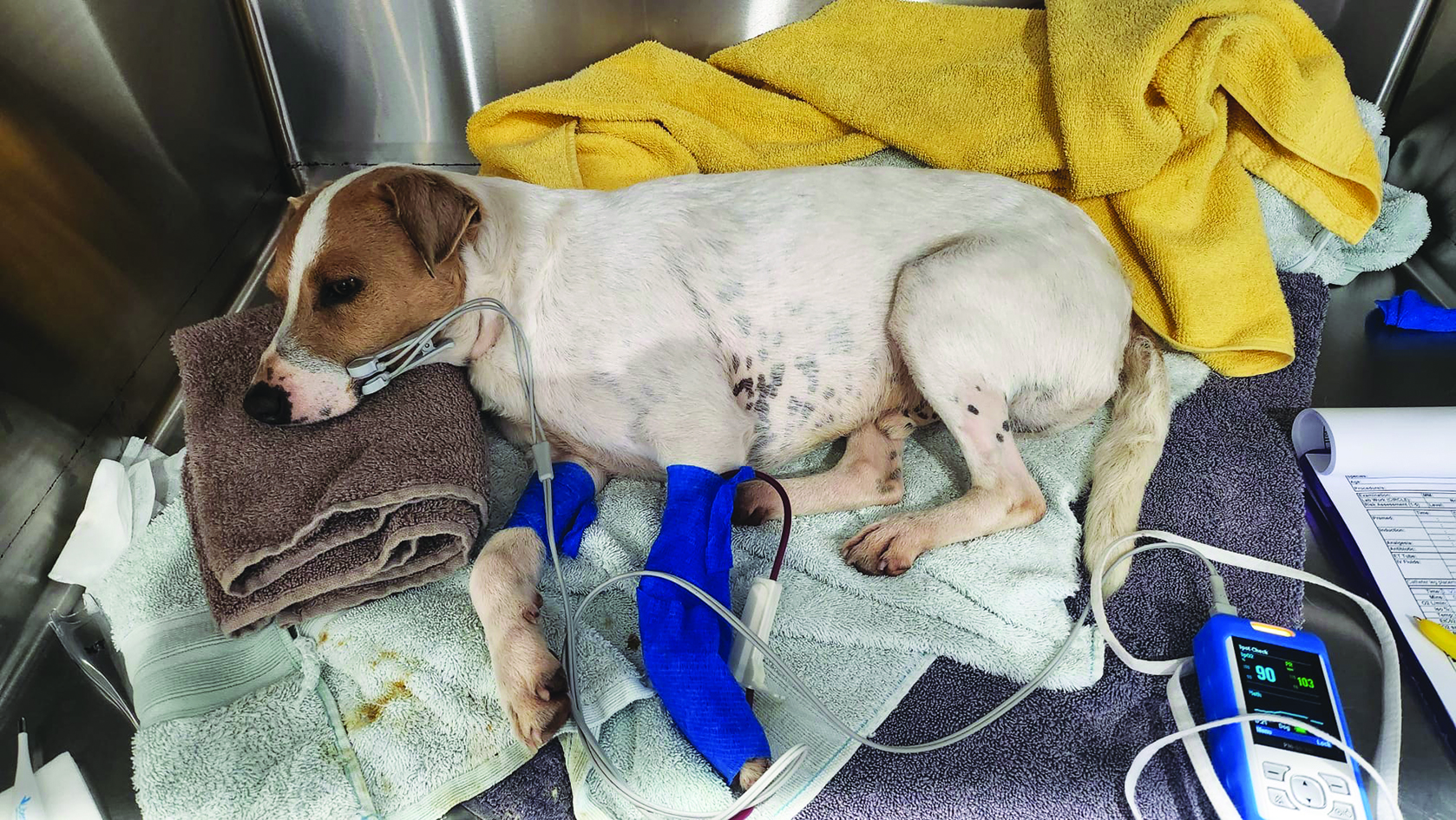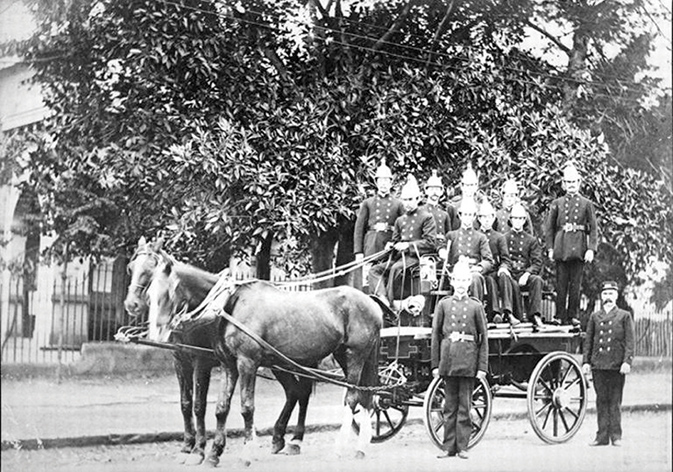By Kellie Tickner, Orchard Hills Veterinary Hospital Administrator
Three-year-old Fox Terrier, Patches, faced a dire situation when he was diagnosed with Immune Mediated Haemolytic Anaemia (IMHA), a serious and life-threatening condition that affects both dogs and cats. IMHA causes the pet’s immune system to mistakenly attack its own red blood cells, leading to severe anaemia and widespread inflammation. This condition requires aggressive therapy and often hospitalisation, including IV fluids and blood transfusions, to stabilise the patient and allow other treatments to take effect.
Patches’ condition was so severe that Dr. Jennie, had doubts about his survival. Despite the guarded prognosis, she was determined to give Patches every chance possible. In a critical moment, the call for a blood donor was answered by an unexpected hero: Ripley, the German Shepherd.
Dog blood transfusions are crucial in veterinary medicine for treating trauma, disease, or anaemia. Just like humans, dogs have various blood types, categorised by Dog Erythrocyte Antigen (DEA) types. The most common is DEA 1.1, and knowing whether a dog is DEA 1.1 positive or negative is essential for successful blood transfusions. DEA 1.1 negative dogs are considered universal donors, capable of donating blood to any other dog regardless of their DEA type.
Ripley, with his DEA 1.1 negative blood type, was perfectly suited for the lifesaving donation Patches desperately needed. Only a small percentage of dogs are DEA 1.1 negative, with breeds like Greyhounds, Boxers, Irish Wolfhounds, Dobermans, and German Shepherds more likely to be universal donors. Ripley’s timely donation was a critical factor in stabilising Patches’ condition, allowing other treatments to work and giving Patches a fighting chance at recovery.
The transfusion process involves intravenously incorporating the donor dog’s blood into the patient’s bloodstream, effectively increasing blood levels and stabilising the patient. This procedure was vital for Patches, whose red blood cell count had plummeted due to IMHA. With Ripley’s blood, Patches’ body received the boost it needed to combat the disease and support the medical treatments he was undergoing.
After the successful transfusion and intensive care, Patches’ condition began to improve. However, IMHA is a chronic condition that cannot be cured but can be managed with long-term medication and regular medical check-ups. Patches will require frequent rechecks to monitor his red blood cell count and adjust his medication as needed.
The story of Patches and Ripley underscores the critical importance of blood donations in veterinary care. While Patches’ journey with IMHA is far from over, Ripley’s heroic donation gave him the chance to live a fuller, healthier life. This incident also highlights the need for more donor dogs, as every donation can potentially save another dog’s life.
IMHA remains a challenging condition, but with dedicated care, adherence to treatment protocols, and the willingness of donor dogs like Ripley, dogs like Patches can continue to lead happy, active lives despite their diagnosis. The bond between Patches and Ripley serves as a touching reminder of the incredible resilience of animals and the profound impact they can have on each other’s lives.
For more information about IMHA or blood donations call the friendly team at Orchard Hills Veterinary Hospital on 4736 2027.






